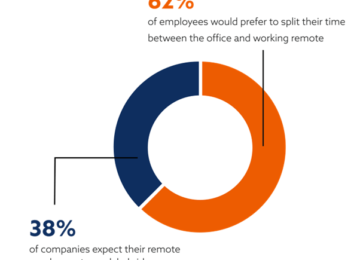If you’re a business owner or freelancer, you’ve likely encountered clients who refuse to pay for goods and services rendered. When this happens, you typically try to contact them about the missing payment. The real issue arises when your attempts to reach the client fail, and it seems they’ve disappeared. In such a situation, your best bet for locating this non-paying client is to hire a skip tracer.
In this article, we’ll explore:
- What skip tracing is
- How skip tracing works
- Why skip tracing is important
- When you need a skip tracer
Choosing between an independent skip tracer and a skip tracing service
Let’s dive in.
What is Skip Tracing?
In a general sense, skip tracing is the process of tracking down people who are missing, unresponsive, or hard to find. This investigatory practice is commonly used to locate individuals due to unpaid debts or unfulfilled financial responsibilities. The person who attempts to find such individuals is known as a skip tracer.
The term ‘skip’ originates from the idiom ‘to skip town,’ meaning to leave a place hastily with few clues about one’s destination. ‘Trace’ refers to the act of tracking down the location or whereabouts of the person.
What is Batch Skip Tracing?
Batch (or bulk) skip tracing involves gathering basic contact information for multiple individuals for business purposes. It is frequently used by real estate companies that need specific information (phone numbers, addresses, emails, etc.) for many potential buyers or sellers.
The most effective way to conduct batch skip tracing is through batch append services. These services acquire the necessary information to contact targeted groups of people. However, this type of service can sometimes provide inaccurate or unuseful data.
Batch skip tracing is typically best utilized when you need to collect data on a large number of people, want it done inexpensively, and are okay with acquiring reliable contact information for only about 50% of your targets.
Who Uses Skip Tracers & Skip Tracing Services?
Skip tracers can be employed across various industries and professions, including:
- Bail bondsmen
- Banks and financial institutions
- Collection agencies
- Credit card companies
- Employment and tenant verification services
- Genealogists
- Insurance fraud investigators
- Journalists
- Lawyers and other legal personnel
- Medical finance professionals
- Private investigators
- Police detectives
- Process servers
- Real estate agencies
- Repossession agents
Skip Tracer vs Bounty Hunter: What is the Difference?
The term ‘skip tracing’ is commonly used interchangeably with bounty hunting. While they’re both related to finding someone who doesn’t want to be found, they’re not the same thing.
Bounty hunters (and bail bondsmen) often hire skip tracers to locate fugitives who failed to appear in court. In truth, bounty hunters can work as skip tracers, but skip tracers can’t work as bounty hunters.
The job of bounty hunters is to find criminals who absconded to avoid going to jail. So they sometimes hire skip tracers to find information that will lead to the apprehension of the fugitive.
But skip tracers do more than track missing criminals. They also investigate witnesses, individuals of interest, subject matter experts (for journalists), and other parties. Skip tracing does not always result in an arrest, as opposed to bounty hunting whose intention is to capture targeted fugitives for a commission or bounty.
How Does Skip Tracing Work?
When you hire a skip tracer to find someone, here’s the standard process they follow:
Verify the Information of the Skipper
Typically, difficulty in finding a person stems from having incorrect contact information. Therefore, skip tracers start by verifying whether the outdated contact details provided by the client, such as the last known address, phone number, email address, and social security number, actually belong(ed) to the individual in question. If fortunate, the skip tracer might find that some of this information is still current, allowing for a quicker contact.
Gather Necessary Information on the Skipper
If the initial step does not yield results, the skip tracer will delve into public records, letters, files, and proprietary investigation databases to gather additional information on the person. These records include:
- Address history
- Court records
- Credit header data from credit applications
- Criminal records (and background checks)
- Civil records
- Driver’s license history
- Employment history
- Phone number records
- Property records
- Tax records
- Utility information
- Social media
- Deep web data
Contact Friends & Family
The information collected from the above records may be sufficient to locate the person. If not, the skip tracer may reach out to the individual’s friends and family. If the person has left town, they may have informed their close contacts about their departure and new location. These contacts might provide information that aids in locating the person.
Note: If the friends and family of the individual are unwilling to share information, an ethical skip tracer will not resort to intimidation or coercion. Instead, a skilled skip tracer uses persuasion to demonstrate how locating the individual is beneficial for all parties involved, aiming to achieve cooperation on agreeable terms.
Why is Skip Tracing an Important Service?
Skip tracing extends beyond locating criminals and debtors. Here are some examples of how skip tracing is utilized across different industries:
1. Finding People Who Failed to Appear in Court – When someone fails to appear in court on their scheduled date, bounty hunters are assigned to the case. These bounty hunters may hire skip tracers to track down the fugitive and ensure they are brought to court.
2. Locating People for a Legal Case – Lawyers, journalists, law enforcement agents, and private investigators can use skip tracing services to find individuals involved in a criminal investigation or civil lawsuit, whether as witnesses or persons of interest.
3. Locating Debtors – Debt collectors employ skip tracers to locate debtors and recover the money owed. These debtors may include:
- Tenants who owe rent or compensation for damaged property
- Employees who committed fraud or embezzled funds
- Clients who owe money to a business
- Contractors who left without completing their work after payment
- Landlords who disappeared after taking money from potential tenants without providing property
- Businesses that have closed but still owe money or services to clients
4. Finding Potential Real Estate Sellers & Buyers – Real estate agents and investors use skip tracing to locate individuals interested in buying or selling real estate. By tracking down property owners, they build lists for their prospect portfolios, helping to expand their business and close more deals.
5. Finding Family & Friends – Skip tracing is valuable for locating missing relatives or friends, or reconnecting with individuals with whom one has lost contact. Common missing persons cases involve:
- Friends and family members lost contact with over the years
- Childhood or college friends/classmates not heard from in a long time
- Adopted children or adults seeking to find their biological parents
- Parents or spouses missing due to domestic issues, divorce, addiction, mental illness, or other problems
- Former co-workers
6. Evaluating Job Applicants – Recruiters and hiring managers may employ skip tracers to perform identity checks and criminal background investigations to confirm that job applicants are genuine and free of criminal backgrounds.
DIY Skip Tracing Methods & Tips
At first glance, skip tracing might seem like a task you can handle on your own. You can, but only if you have reliable information and know what you’re doing. If not, it’s best to leave skip tracing to the professionals.
If you choose to attempt skip tracing yourself, here are some basic resources and tips to get you started:
While Google is a powerful tool, it doesn’t always provide comprehensive results. Searching with only a phone number or email address might not yield useful information. If the person you’re looking for doesn’t want to be found, their details might not appear in Google searches, or they could be outdated. However, if you have a name and home address, you might find more relevant information. Searching the person’s name and checking the “Images” tab may lead you to a recent photo. Clicking on the image could direct you to the hosting website, where additional details like date of birth, past employers, or schools attended might be found. From there, you can start connecting the dots and cross-referencing to verify you’ve found the right person.
Social Media
If you have the person’s name or email address, try searching on social networks like Facebook, Twitter, or LinkedIn. You may come across several profiles with the same name, but scrolling through them might help you find the correct individual. Social media users often connect with their actual family and friends, so if you have a list of the person’s relatives and friends, compare that with the contacts on their social media profiles. This can help confirm you’ve found the right person. Also, check the birthdays and locations on their profiles. The more details you find, the more likely you’ve found the correct match. For more guidance, check out our video on social media skip tracing.
People Finders
People finders are websites that provide access to public records and other available information. These platforms aggregate billions of records from local, state, and federal agencies. By searching their databases, you can find personal information such as phone numbers, business records, court records, addresses, and details about relatives.
Genealogy Websites
Genealogy sites are not only useful for tracing family trees but also for locating individuals. Depending on the information you have, these sites can reveal full names, birthdays, ages, names of relatives and friends, current and past addresses, and phone numbers. Links to relatives and friends on these sites can lead you to additional web pages with more information.
When Should You Hire a Skip Tracer?
As previously mentioned, if you have ample time and sufficient information about the person you’re searching for, you might attempt a skip trace investigation on your own. However, in many cases, it’s advisable to hire a professional skip tracer or a company specializing in skip tracing services. Consider hiring a skip tracer in the following situations:
You Cannot Locate the Individual: If you have no idea where the person lives, a skip tracer can help. They know where to start and the most effective methods to find the individual.
You Suspect the Individual Is in a Certain Area: If you believe the person is living in a specific area but can’t find them, a skip tracer can verify your suspicions. This is particularly important if you need to serve legal documents.
You Want to Verify if the Person Is Deceased or Incarcerated: If friends or relatives are claiming that the person is deceased or in prison to prevent them from being found, a skip tracer can investigate. They can check criminal records, local jails, and state and federal prisons to determine the person’s status.
How Much Does Skip Tracing Cost?
The cost of skip tracing varies based on the quality of service, the complexity of the investigation, and the provider’s experience. Generally, you can expect a range of costs:
Initial Search: For a basic skip trace, experienced professionals typically charge a flat fee between $250 and $500. This fee may have limits on what is included in the search.
Advanced Search: For more complex cases, where the individual is particularly difficult to locate, skip tracing services are usually billed hourly plus expenses. Hourly rates range from $95 to $200, with a typical budget starting around $1,500.
Batch Skip Tracing: The cost for batch skip tracing varies from $0.10 to $3 per record.
Professional skip tracing companies use resources and techniques beyond those available to the average person. Their extensive experience and access to specialized tools can result in significantly more accurate and effective outcomes than simple online or database searches.












